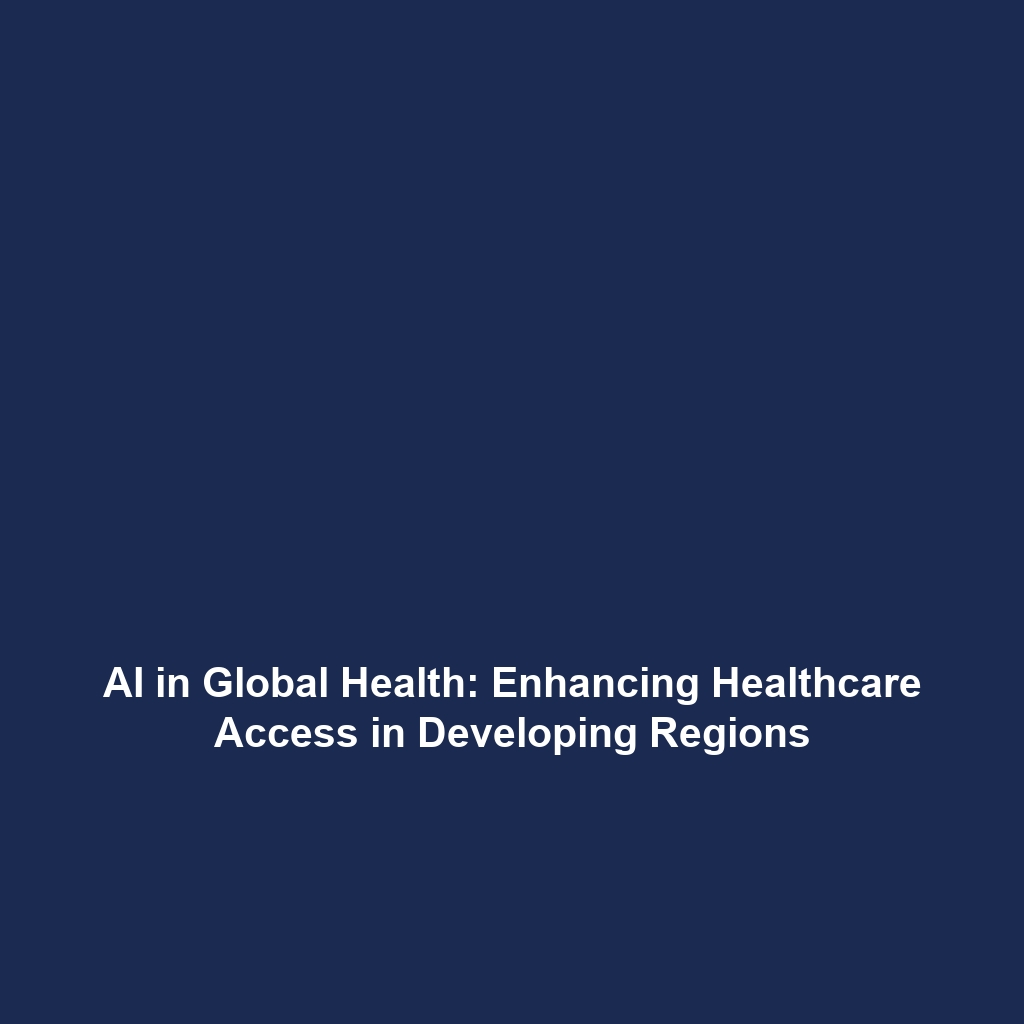AI in Global Health: Expanding Access to Healthcare in Developing Regions
Artificial Intelligence (AI) has emerged as a transformative force in various sectors, with healthcare being one of the most impactful. In the context of global health, AI technologies are breaking down barriers to healthcare access in developing regions, where traditional healthcare systems often struggle. Understanding the significance of AI in Global Health offers insights into its potential to deliver essential medical services, improve clinical outcomes, and enhance overall health infrastructure.
Key Concepts in AI for Global Health
Investing in AI in Global Health involves understanding major concepts that integrate with the broader field of AI in Healthcare. Below are some critical principles:
- Telemedicine Solutions: AI-powered telehealth platforms enable remote consultations, allowing patients in underserved areas to access quality healthcare without the need for travel.
- Predictive Analytics: AI algorithms analyze health data to predict disease outbreaks and patient outcomes, enabling proactive health initiatives.
- Health Education: AI applications help disseminate vital health information through chatbots and mobile applications, improving health literacy.
Applications and Real-World Uses
The practical implementation of AI in Global Health is evident through various applications. Here are some examples of how AI in Global Health is used in the context of AI in Healthcare:
- Disease Diagnosis: AI tools analyze medical imagery, such as X-rays and MRIs, improving diagnostic accuracy in remote clinics.
- Mobile Health Applications: AI-driven mobile apps are used to track chronic diseases, facilitating better management and care for patients in developing regions.
- Logistical Optimization: AI solutions optimize supply chain management for medical resources, ensuring that essential medications reach remote locations efficiently.
Current Challenges
Despite the advancements of AI in Global Health, several challenges persist, impacting its integration within AI in Healthcare:
- Data Privacy: Ensuring patient data security while employing AI technologies remains a critical concern.
- Infrastructure Limitations: Many developing regions lack the technological infrastructure necessary for implementing AI solutions.
- Training and Education: Ongoing training for healthcare providers in utilizing AI tools is essential yet often overlooked.
Future Research and Innovations
The landscape of AI in Global Health is rapidly evolving, with several promising innovations on the horizon:
- Wearable Health Technologies: Future devices could provide real-time health monitoring and feedback, improving patient management.
- Decentralized Clinical Trials: AI may pave the way for more flexible and efficient clinical trial participation in underserved populations.
- Natural Language Processing: Innovations in AI could enhance communication between patients and healthcare services by leveraging human-like understanding of language.
Conclusion
AI in Global Health is a vital component of the movement to expand healthcare access in developing regions. The insights gained from AI technologies are crucial for addressing healthcare disparities. Moving forward, a collaborative effort from technology developers, healthcare professionals, and policymakers is essential to harness the full potential of AI in Healthcare. To learn more about current trends and advancements, explore our articles on AI in Healthcare and Telemedicine Innovations.
